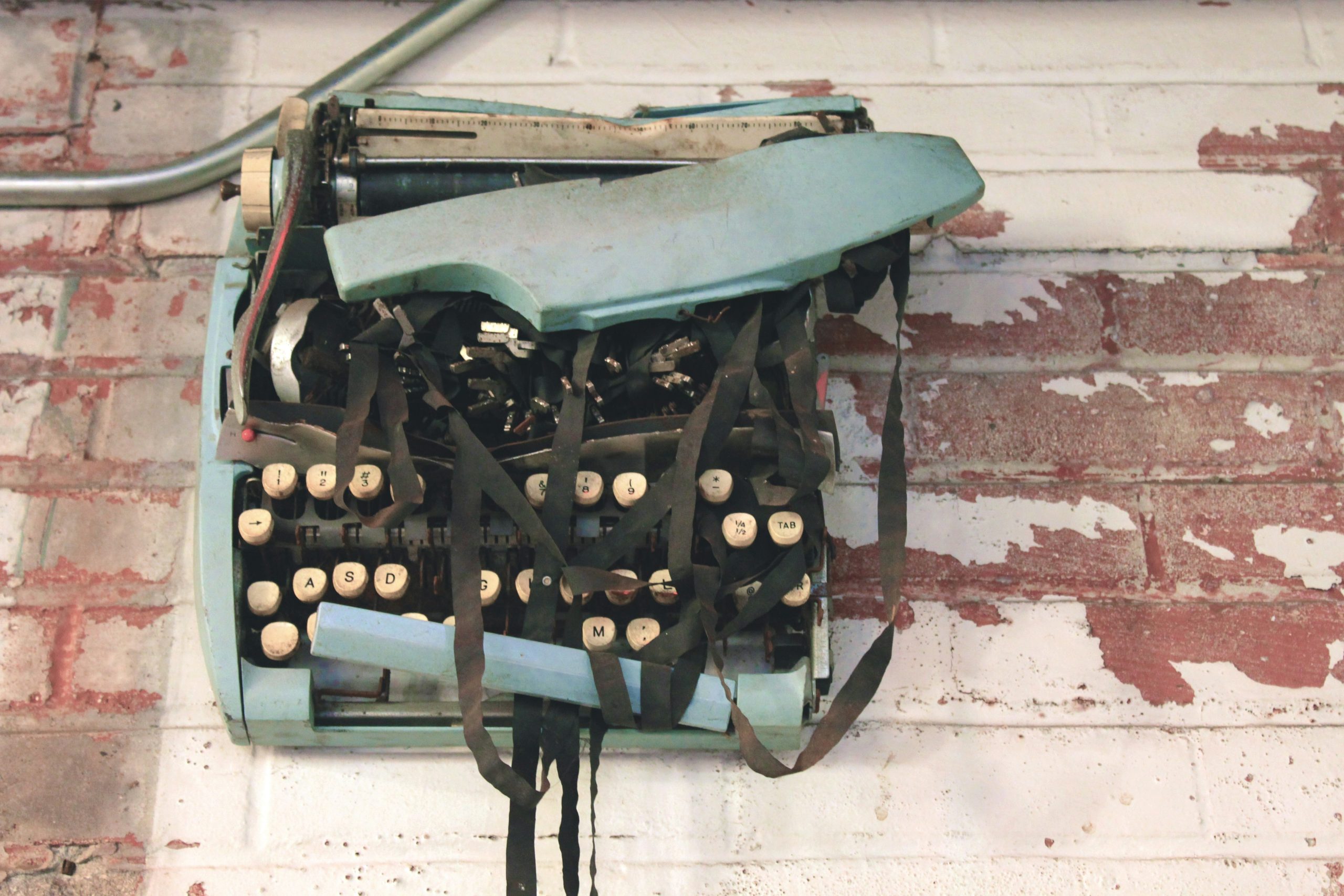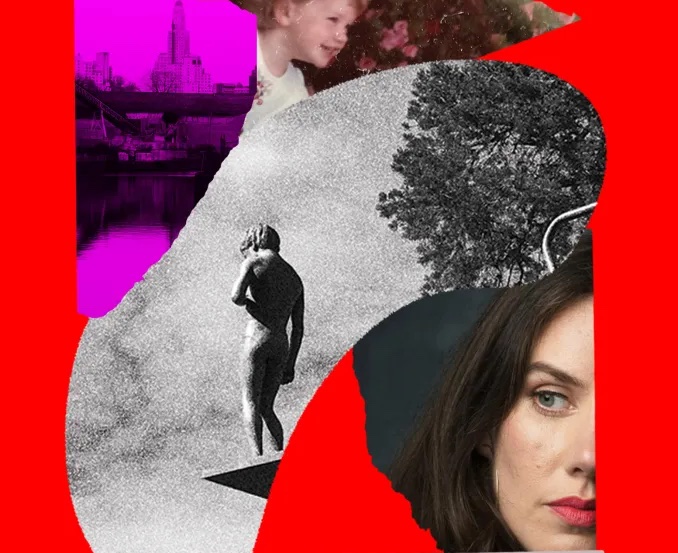Craft
I Stole My Neighbors’ Tragedy To Write a Short Story
The stakes are higher when we mine someone else’s grief for art

It was the kind of summer night we’d been craving all week. Easy conversation, endless beers, suburban life drifting on welcome breezes— “Marco?” “Polo!” screamed from a backyard pool, raucous laughter as someone’s bullshit was called out. Six of us sat in a hot tub: my boyfriend, his sister and brother-in-law, and their middle-aged neighbors. I was 23. My boyfriend and I had been cheating on one another since high school. The others were stable, in their thirties. We partied as the kids slept inside.
My boyfriend and I were tourists in this land of adulthood. And like a tourist, or a writer, I hoped to glean some light calamity—say, a dispute over lawn mowing—that I’d spin into fiction from a safe remove. At 23, I was primed for narrative. I was earning my M.F.A. in Fiction and captivated by the subtle, domestic oddity of stories by Raymond Carver and Ann Beattie. The kinds of stories that say, Sure, there are driveways and drinking on the patio, but something is wrong here, something is off. As writer Dan Chaon describes Carver’s fiction, it’s a kind of ghost story in which the ghost fails to appear.
As a young writer, I wanted that eeriness, or so I thought, as we bumped bare legs beneath the surface. The hot tub, bare flesh, neighbors, drinking, sleeping kids inside—all of it was ripe for story. Like a tourist—or a writer—I would capture that ghost.
My writer’s mind listened, gathering storyable details, while my human heart grieved.
So when the neighbors began talking about the funeral for their teenage daughter, held days before, my mind cleaved into two parts: sympathizing, and recording. Or, maybe it’s more like this: my writer’s mind listened, gathering storyable details, while my human heart grieved—and then, as my heart will do upon hearing about parents mourning dead children, my heart hardened so my mind could do its work.
The story I ended up writing, “When Tom and Georgia Come Over to Swim,” was about neighbors in a hot tub talking about their young, newly dead daughter, chattering about constellations when what they’re enduring is unspeakable. It was a ghost story where the ghost appeared in ballet shoes, backpacks, an autopsy report tucked in a routine stack of mail.
The story won me a program scholarship, and years later, found publication. Readers praised the story’s “authentic” details.
And of course they were, because I’d stolen them.
I celebrated my success, but inside, I clenched. I’d never told the real “Tom and Georgia” I’d mined their tragedy for fiction. What if they found out?
The story follows the perspective of Pauline, a mother struggling to comfort her grieving neighbors, whose life path once looked like her future. Georgia’s loss makes Pauline feel grotesque. She yearns for familiar conversation as the neighbors recount coroner’s findings and outfits for trips that never will be taken.
At 23, I was unmarried and about to break up with my no-count boyfriend. I wouldn’t have children or a mortgage for another decade. My short story was definitely fiction. But whenever I thought about the real neighbors suffering real loss, I felt guilty. All my Carver-esque pretensions shriveled to ghoulishness.
Then, one day, the real “Tom and Georgia” read my story.
And they sent me a letter about it.
It’s common knowledge that you should never tell secrets to writers.
Actually, you don’t need to utter a word. We’re just as content to hear your cousin gripe about your Prius, or imagine you’re the dolt who, according to our med school friend, tried weird sex stuff and ended up in traction. Several legends, including one about Raymond Carver, tell of writers competing for the same juicy, real-life tidbit.
When it comes to story—old, new, repressed, overheard, uncovered, expressed, distant, or in-progress—writers are gossips, colonizers, appropriators, vacuums, tornadoes, Great Devouring Beasts, the Borg: absorbing facts and anecdotes at diner counters, combat training, even at the deathbed of a loved one. Once we’ve gathered, we repurpose. So, maybe it’s more like writers are swallows, wasps, termites, crows: scavengers who pluck dog hair pufflets from the lawn, and dirt from ancient ruins, all to craft a kind of nest—a living, and shared, space.
It’s a nifty skill. But does it make you lose your soul?
I’ve chosen to tell you I had a brother—something I’ve not even shared with my own children, not yet.
It’s one thing to harvest your own experience for story. I love the way Ayelet Waldman puts it in her harrowing essay “Rocketship.” Waldman recounts the turning point in her pregnancy when her very loved, very wanted baby tested positive for a rare genetic condition: “And I think, ‘A person really does fall onto the ground screaming… Remember that.’… A writer stands at a distance and watches her heart break.”
Waldman studies her anguish with writerly detachment, repurposing agony into material. And who wouldn’t want distance from their own split heart? To shrink overwhelming pain into something as small as words on a page?
This is what I, and lots of writers, do. Some of my worst experiences have generated fiction: my anorexia at age 12; my ex-husband’s violence and stalking; anxieties over caretaking and alcoholism. One of my current projects is a memoir about the death of my 13-year-old brother when I was four years old.
Here’s the thing: I’m authorizing myself to write these stories for an audience, even now. I’ve chosen to tell you I had a brother—something I’ve not even shared with my own children, not yet. But you, Reader, will learn exactly what I want you to know about me, and whether I call it truth or fiction, when I want you to know it—and not a moment before.
It’s a privilege to be the swallow, the tornado, the gossip—to hold the power of selection, and selectivity.
But what about other people’s experiences that we repurpose—people who might show up at our yard sales? How do we respond when these actual people (and not our characters) realize that their bright strands of hope and hopelessness are, to us, really great material to weave through splendid nests?
It took thirty years and a gossipy headline to remind me of that letter.
The headline: a woman suspected she was, in part, the subject of a New Yorker short story that went viral. Unique details from her life, and a relationship with a boyfriend, were on the published page. The piece was presented as fiction, and yet, she recognized fragments of her truth. She was afraid to confront the story’s writer until one day, outraged, she did. And, it turned out, she was right.
‘Well what do you expect?’ they asked. ‘Stealing is what writers do!’
Alexis Nowicki’s essay about this confrontation is the kind of literary drama that makes Thursday Twitter scrolling—frankly—awesome. Nowicki reveals that in her teens, she dated a much-older man, Charles, renamed “Robert” in the New Yorker story: “So much of the central dynamic in the story rang true to me: Charles’ cryptic communication style; the way I had to work to impress him; the joke rapport we created between our cats early on.” But unlike the real Charles, “Robert” becomes creepy, mean, pathetic. This is important to know. These were real people who lived these lives, she asserts, and they were neither as anxious nor as sinister as depicted in fiction. Yet those impressions will endure. In closing her piece, Nowicki eulogizes two losses: the death of her former boyfriend, Charles, eternally fictionalized into a predator; and the loneliness of being one of the few who knew him to be otherwise.
But Nowicki’s purpose in writing about the real-life experiences that inspired another writer’s fiction is less revelatory than redemptive. In fact, this essay also does something stunning. At one point, Nowicki questions her lived experience:
“Had Charles actually been pathetic and exploitative, and I simply hadn’t understood it because I, like [the character] Margot, was young and naïve? Had he become vengeful and possessive after we broke up, but I’d just blocked it out in order to move on with my life?”
How much of this fiction is accurate about my reality? That’s an unusual question from a person whose life has been written (in part) into fiction. I’ve never seen it asked before. Instead of denial or a screed, Nowicki engages a character created from her experiences and wonders, Was the writer onto something?
She doesn’t have to do this at all, let alone in her own essay. It’s a remarkable gesture of compassion.
Back on Twitter, responses split predictably. Non-Writer Twitter seemed appalled that writers take details from actual humans, living and dead. Writer Twitter couldn’t stomach such piety, such naïveté: Well what do you expect? they asked. Stealing is what writers do! The swallow steals without permission—but swallows gonna swallow.
All valid reactions, but also, rather simplistic.
Because Nowicki hadn’t issued a prohibition against mining real lives, even her own life, for fiction. She’d simply shown one set of consequences when writers do.
Facing these consequences, for some, is a central anxiety. And to be crass, our ambivalence generates even more material. As David Sedaris writes in “Repeat After Me”:
“‘Oh come on,’ I said. ‘The story’s really funny, and, I mean, it’s not like you’re going to do anything with it.’
Your life, your privacy, your bottomless sorrow — it’s not like you’re going to do anything with it. Is this the brother I always was, or the brother I have become?”
And Toni Cade Bambara makes the inevitable laughable in “A Sort of Preface” to Gorilla, My Love:
“It does no good to write autobiographical fiction cause the minute the book hits the stand here comes your mama screamin how could you and sighin death where is thy sting and she snatches you up out your bed to grill you about what was going down back there in Brooklyn when she was working three jobs and trying to improve the quality of your life and come to find on page 49 that you were messin around with that nasty boy up the block and breaks into sobs and quite naturally your family strolls in all sleepy-eyed to catch the floor show at 5:00 A.M. but as far as your mama is concerned, it is nineteen-forty-and-something and you ain’t too grown to have your ass whipped…
So I deal in straight-up fiction myself, cause I value my family and friends, and mostly cause I lie a lot anyway.”
Imagining the aftermath of our creative decisions—our necessary swallowing of human experience—is uncomfortable. Our responses seem to range from self-inhibiting to flinching to screw-you-buddy to N/A.
For a group so trained on imagining outcomes and endings, you’d think we’d be better prepared.
In the early ‘90s, my no-count boyfriend’s sister loved my story, so she gave a copy to the real Tom and Georgia and they sent me a letter.
Already, I’d worried in all ways: I worried they might read the story—but vaguely, someday, like after I’d won the Pulitzer. I worried when they had it. I worried when I opened their letter.
But for all that worrying, I’d never asked their permission. I wouldn’t do so now.
Asking permission could have invited others to tell their story instead of the one I imagined. A dynamic could open, perhaps a collaboration. Collaboration is a lovely word, but it belies an artistic turf war: an exchange with expectations I’d honor someone else’s feelings, their need to get it right. These are timeworn concerns, calling into question how inspiration fuels process and notions of the individual, self-isolating artist.
With a story sourced from another person’s grief, the stakes are higher, sharper. I feared the worst: they’d hate me. They’d sue me. They’d call me a graverobber. They’d call me exploitative. They’d be right.
But for the writer I was in my early 20s, there was another fear I couldn’t yet articulate. I worried that by asking permission, I’d make them talk about their child’s death—something I knew, from experience, to be the hardest thing to speak, and the hardest thing to hear.
I’ve lived forever not wanting to hear, or talk, about my own deep losses, instead imagining them in fiction. I’ve stood at a distance watching my own heart break. I’m fairly good at it. I’ve mostly shut my ears for my entire life, despite the fact that my brother’s best storytellers, my parents, are still living and full of memories to share.
Just like the parents of a teenage girl riding her bike through an intersection one blinding summer evening.
With a story sourced from another person’s grief, the stakes are higher, sharper.
Just like “Tom and Georgia.”
Their letter to me is long-buried, but I wouldn’t quote it here anyway. Here’s what I will share:
The parents of a much-loved child saw their grief take shape in my story. They appreciated my care in rendering it. They were, in a small way, grateful to have their daughter’s life and death recorded. Now, there was a place where a piece of her story, and their story, would always live.
Their words read like forgiveness. Now, I see they were also a guidepost, a way forward in grief and listening. A gesture of connection, recognition, and understanding. An acknowledgment of all the ghosts we carry, even those we may not be ready, or able, to articulate.
Imagining the consequences of our choices as writers, we want to steel ourselves for battle. Prepare for lawsuits. Deflect. Hide. Champion our noble pursuits. Wave our banners. Deprecate ourselves as greedy junkmen. Apologize for our swaths.
But what if we also imagined meeting consequence with compassion? What if we acknowledged our role in someone’s pain? What if we just listened? We have those options, too.
Sometimes, our readers just have to show us how.








